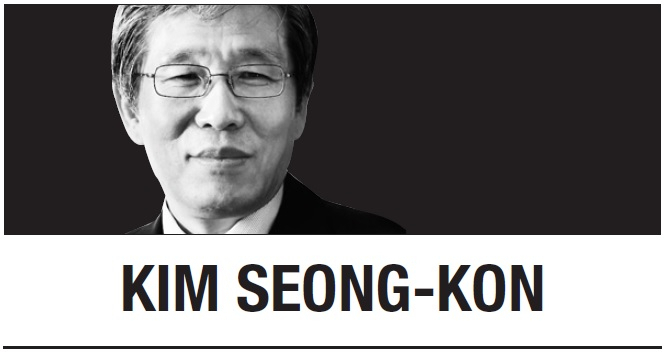
When you take a taxi, the driver will ask, “Where to?” Upon knowing your destination, he will try to figure out the fastest way to reach it, avoiding traffic congestion and wrong turns, so you can arrive safely without any problems.
Likewise, your political leaders should know your desired destination and choose the best way to reach it. If they happen to choose the wrong path or become blocked by traffic, if they have made a wrong turn at the intersection or have taken you to the wrong place, you would end up in deep trouble.
Metaphorically speaking, a government resembles a bus. A bus driver would not ask, “Where to?” Unlike a taxi, a bus displays its destination on its front window. Thus, if you take the wrong bus, it is your responsibility, because you should make sure to know where the bus is going before boarding it. Likewise, before choosing your political leaders, you should scrutinize how trustworthy they are and where they might take you and your country.
That is to say, voting for incompetent political leaders is like choosing a bad driver and boarding the wayward bus he is driving. Then, you will inevitably suffer the bumpy roads, the heavy traffic jams and the numerous detours. The unreliable, clumsy driver may even drive the bus up the wrong way on a one-way street, which could cause a serious traffic accident that may cost you your life. To make matters worse, a heavily damaged bus takes a long time to repair.
Presently, the bus called "South Korea" is at a crossroads. We should decide whether to go straight or turn left or right. At the intersection, we should move as fast as we can. Otherwise, we might collide with other cars coming from all other directions. Our political leaders should make a swift decision in order to avoid an imminent collision that will seriously damage our country.
We believe that the Yoon administration is well aware of the grave situation South Korea is now facing in the vortex of an international crisis. We also believe that our politicians should stop fighting like ducks in the pond of the political arena and instead soar like eagles into the sky, looking down upon the ever-changing international current. Then, they can maneuver the South Korea bus skillfully to avoid the foreseeable catastrophe.
Currently, South Korea is facing unprecedented economic, diplomatic and national security challenges due to the sudden change in international climate. For example, experts are concerned about the prospect of South Korea’s semiconductor business that will have to compete with Taiwan and Japan, who are rising again under the tutelage of the US.
Since our economy heavily depends on the prosperity of the semiconductor business, we should listen to the experts’ admonition that South Korea may also end up experiencing the “lost 10 or 20 years,” just like Japan did due to the real estate market crash and the staggering semiconductor business. In order to protect our semiconductor business in the future, we should closely work with the US as a fellow traveler.
Our diplomatic crisis primarily stems from the recent international conflicts between liberal democracy and the people’s democracy, or liberalism and totalitarianism. Since the “strategic ambiguity” is no longer valid, we cannot help but choose between the two systems in accordance with our identity and core principles. If we continue to hesitate, we may look like opportunists in the eyes of the world.
Meanwhile, military experts advise us to expand our alliances with other countries including Japan, Australia and Europe, as the threats of totalitarian socialist countries are escalating. Indeed, we are now witnessing the second Cold War, launched by the recent clashes between the countries of liberal democracy and totalitarian countries who believe their system should be the worldwide standard. Undoubtedly, South Korea, too, is vulnerable to aggressions from authoritarian socialist countries such as North Korea. For South Korea, therefore, the more allies, the better.
Due to the dark history between Korea and Japan, the Korean people may be reluctant to launch a South Korea-Japan alliance. However, political analysts point out that Japan is no longer an imperialist country, but a liberal democracy, just like South Korea. Besides, as long as the US is with us, nothing can possibly go wrong between the two countries. If so, we should think positively and make a bold move to work with Japan, if necessary, to protect the free world from the aggressions of totalitarian countries.
In 1848, Lord Henry Palmerstone, former British prime minister, said, “We have no eternal allies, and we have no perpetual enemies. Our interests are eternal and perpetual, and those interests it is our duty to follow.” Lord Palmerstone’s advice illustrates what path we should take.
We hope our political leaders are taking us down the right path toward the correct destination in these difficult times.
Kim Seong-kon
Kim Seong-kon is a professor emeritus of English at Seoul National University and a visiting scholar at Dartmouth College. The views expressed here are his own. -- Ed.





![[Graphic News] More Koreans say they plan long-distance trips this year](http://res.heraldm.com/phpwas/restmb_idxmake.php?idx=645&simg=/content/image/2024/04/17/20240417050828_0.gif&u=)